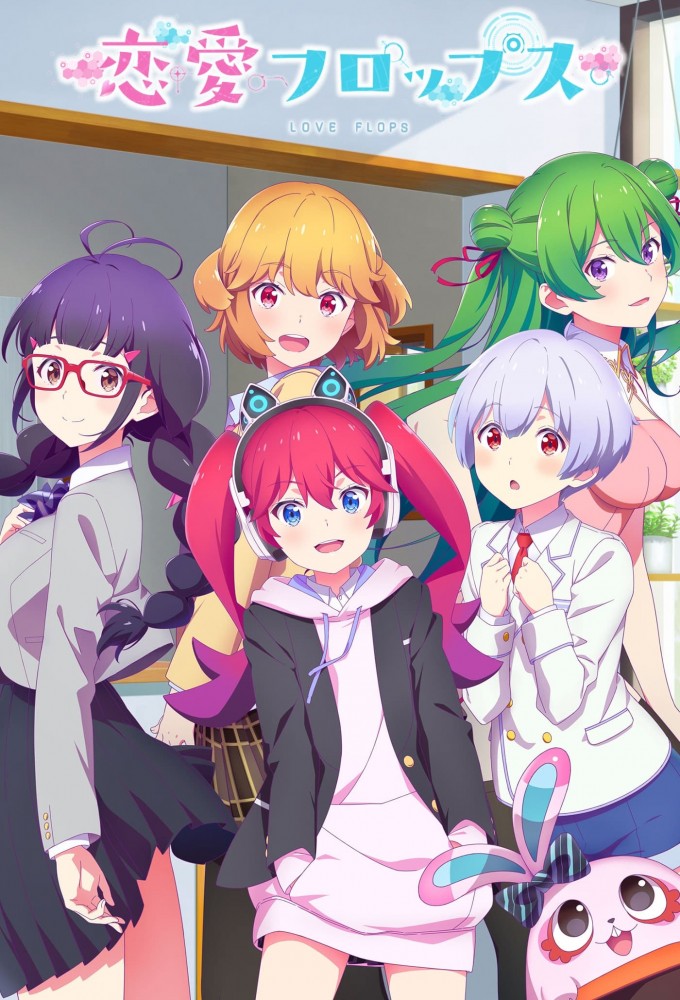
アニメは、ある朝、学校に行く途中である朝に一連の異常な事故に遭遇した学生、柏木朝日を中心にしています。すべて、彼がその朝見た漠然としたテレビの運命に従って、すべてが不幸な出会いで最高潮に達します。 女の子。 偶然にも、彼が出会うすべての女の子は彼の学校の新入生または教師です。 朝日は女の子についての事前の知識から、自称「朝日の友達」である吉尾の疑いを抱く。 放課後、彼は靴のロッカーにラブレターを見つけ、朝の運勢に応じて、学校の裏にある桜の木に来るように言った。 朝日は何が待っているのかを見るために桜の木に向かいます。
| Season | From | To | Episodes |
|---|---|---|---|
| All Seasons | |||
| Specials | 0 | ||
| Season 1 | October 2022 | December 2022 | 12 |
| Unassigned Episodes | 0 |
| Season | From | To | Episodes |
|---|---|---|---|
| Season 1 | October 2022 | December 2022 | 12 |
| Unassigned Episodes | 0 |
| Name | Number of Episodes | Dates | |
|---|---|---|---|
| Nobuyoshi Nagayama | 12 | 10/12/2022 - 12/28/2022 | |
| Daiki Takemoto | 2 | 11/02/2022 - 12/21/2022 | |
| Tarō Kubo | 2 | 11/30/2022 - 12/07/2022 | |
| Fujiaki Asari | 2 | 10/12/2022 - 12/28/2022 | |
| Hiroki Moritomo | 2 | 10/26/2022 - 11/16/2022 | |
| Midori Yui | 1 | 10/12/2022 | |
| Yuuta Kida | 1 | 11/23/2022 | |
| Satoshi Saga | 1 | 12/14/2022 | |
| Mika Komatsu | 1 | 10/19/2022 | |
| Hito Tadano | 1 | 11/09/2022 |
| Name | Number of Episodes | Dates | |
|---|---|---|---|
| Ryou Yasumoto | 12 | 10/12/2022 - 12/28/2022 |
No lists.

Magical Sentai is a type of magical girl wich mixes characteristic of the magical girl subgenre and the sentai subgenre. This type of magical girl generally use their magical powers after a transformation which is usually a change of clothes to wear a distintive uniform. Moreover they generally fight vilains in group.

Anime series which are not based on source material (manga, light novel, novel, video games, toy franchise, etc...)

Ecchi (エッチ, etchi, pronounced [et.tɕi]) is a slang term in the Japanese language for playfully sexual actions. As an adjective, it is used with the meaning of "sexy", "dirty" or "naughty"; as a verb, ecchi suru (エッチする or Hする) means "to have sex", and as a noun, it is used to describe someone of lascivious behavior. It is softer than the Japanese word ero (エロ from Eros or "erotic"), and does not imply perversion in the way hentai does. The word ecchi has been adopted by western fans of Japanese media to describe works with sexual overtones. In western culture, it has come to be used to refer to softcore or playful sexuality, as distinct from the word hentai, which connotes perversion or fetishism. Works described as ecchi by the western fans do not show sexual intercourse or genitalia, but sexual themes are referenced. Ecchi themes are a type of fan service, and can be found in most comedy shōnen and seinen manga and harem anime.


Harem (ハーレムもの, hāremumono, "harem works") is a genre of light novels, manga, anime, hentai, and video games originating in Japan in the 1970s but exploding late 1980s and 1990s with dating simulator games and focused on polygynous or polyandrous relationships, where a protagonist is surrounded by three or more androphilic/gynephilic suitors, love interests and/or sexual partners. Harem works are frequently comedies that rely on self-insertion protagonists allowing the audience to project themselves unto, and on having relatable and interesting ensemble cast of characters. A story featuring a heterosexual male or homosexual female protagonist paired with an all-female/yuri harem series is informally referred to as a female harem or seraglios, while a heterosexual female or gay male protagonist paired with an all-male/yaoi harem series is informally referred to as a male harem, reverse harem, or gyaku hāremu (逆ハーレム).



Romantic comedy (also known as romcom or rom-com) is a subgenre of comedy and slice of life fiction, focusing on lighthearted, humorous plot lines centered on romantic ideas, such as how true love is able to surmount most obstacles. In a typical romantic comedy, the two lovers tend to be young, likeable, and seemingly meant for each other, yet they are kept apart by some complicating circumstance (e.g., class differences, parental interference, a previous girlfriend or boyfriend) until, surmounting all obstacles, they are finally united. A fairy-tale-style happy ending is a typical feature.
No lists.
Please log in to view notes.